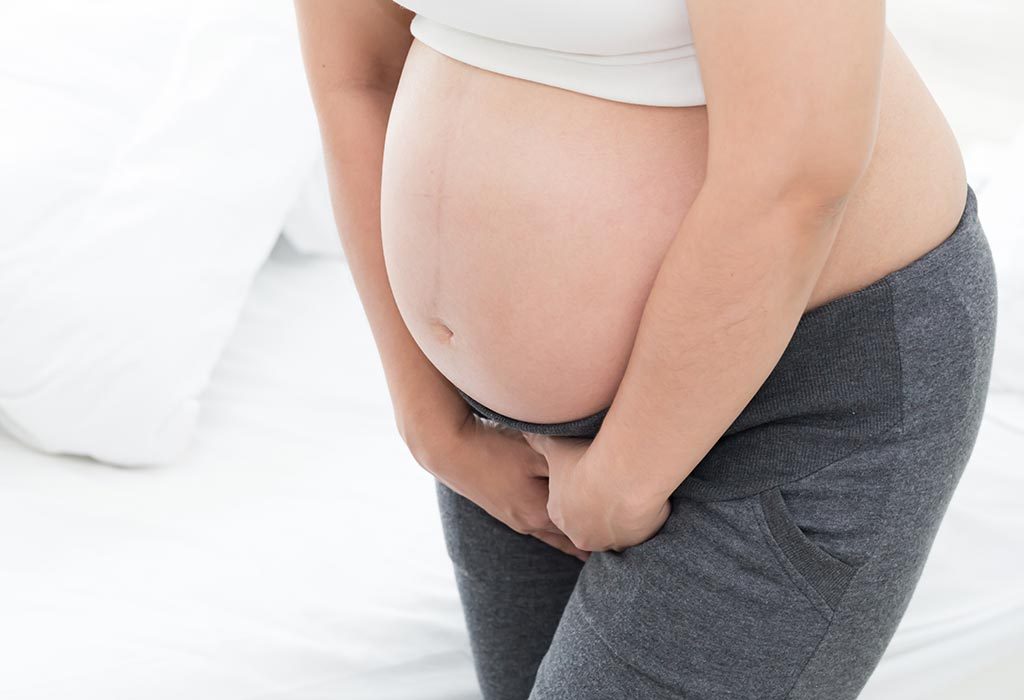If you are in your third trimester of pregnancy and noticing a strong smell to your urine, you are not alone. Many pregnant women experience this issue, and it is important to understand the cause and any potential complications that could arise. It can be helpful to talk to your doctor about this issue so that you can take the necessary steps to ensure your and your baby’s health and wellbeing. In this blog post, we will discuss the causes and potential complications of having strong smelling urine during the third trimester of pregnancy, as well as tips for managing it. We want to ensure that pregnant women are educated and aware of the potential risks and complications associated with this condition, and how to address them. So whether you are in the midst of your third trimester, or just curious about what to expect, read on to learn more about strong smelling urine during pregnancy.
What are the symptoms of chorioamnionitis?
The symptoms of chorioamnionitis can include the following:
Your doctor may be able to determine whether you have chorioamnionitis based on your symptoms, but if your membranes haven’t fully ruptured and they think you might, they might advise an amniocentesis to collect amniotic fluid for testing. Trusted SourceStanford MedicineChorioamnionitisSee All Sources [2].
It’s critical to contact your healthcare provider as soon as you notice any of the aforementioned symptoms because infection of the amniotic membranes and fluid has been associated with preterm labor and increases the risk of infection for your unborn child.
Seek treatment as soon as possible because prolonged membrane rupture increases the risk of chorioamnionitis. A mother’s water may occasionally break during a term pregnancy without any contractions starting. While some patients choose to wait for contractions to begin, doing so can lengthen labor and increase the risk of chorioamnionitis.
Chorioamnionitis can be serious, but treatment is available. Antibiotics will likely be prescribed if you are found to have chorioamnionitis in order to eradicate the bacteria. After delivery, antibiotics will be given to both you and your child to ensure that no new infections arise.
Delivery, even if it is premature, may be the best treatment option if the infection is more severe or if the baby’s health is in jeopardy. reputable sourceAmerican College of Obstetricians and Gynecologistsmanagement of intraamniotic infection during labor and deliverySee All Sources [3]
A Heightened Sense of Smell
Your hormone levels are increasing during pregnancy, and you will be able to detect even a small change in the smell of your urine. Your heightened sense of smell may lead you to believe that your urine now smells strongly.
Generally speaking, urine has little to no smell, but it does contain ammonia, which is diluted by the water you drink. Lack of water intake can cause urine concentration, which can produce a pungent odor. Dehydration brought on by drinking less water can be harmful to both you and the baby.
During pregnancy, urinary tract infections are a common infection that frequently cause urine to smell bad. In addition to fever, back pain, and pain when urinating, UTI (Urinary Tract Infection) can also cause.
When urine and vaginal secretions mix, bacterial vaginosis (BV), a vaginal infection, can result in odorous urine. Even though this foul odor can occasionally be embarrassing, BV may increase the likelihood of an early labor.

During pregnancy, the urethra and bladder tissues relax a little bit, which results in some involuntary urine leakage. This condition, also known as urinary incontinence, is made worse when you laugh or sneeze while holding in urine. As early as the first trimester of pregnancy, strongly smelling urine is a sign of early pregnancy.
Strong-smelling urine can also be brought on by including foods like broccoli and asparagus in your diet on a regular basis. If your urine is offensive, think about eating these foods in smaller portions.
You will be instructed to take supplements that will benefit your pregnancy while you are expecting. However, consuming supplements can cause your urine to smell. Consult with your doctor before you take any supplements. Avoid taking unnecessary supplements, and add more foods high in folic acid, iron, and calcium to your diet.
Pregnancy and Group B Strep Disease
According to the Mayo Clinic, group B streptococcus (GBS), a bacterium that frequently resides in the intestines or lower genital tract, may be the cause of a UTI. But during pregnancy, GBS might merely be a component of a woman’s vaginal flora as opposed to being the source of a UTI. Late in pregnancy, typically between weeks 35 and 37, vaginal and rectal swabs are used to test pregnant women for GBS. According to the ACOG, if a woman tests positive, the antibiotic penicillin is administered to her during labor to prevent newborns from contracting early-onset GBS infection.
GBS can spread to newborns during delivery and result in group B strep infection if left untreated.
Sometimes, GBS manifests itself in newborns within a week of birth, with symptoms like fever, lethargy, and difficulty feeding. According to the Mayo Clinic, the infant may also experience group B strep late-onset symptoms within a few weeks or months of birth.
